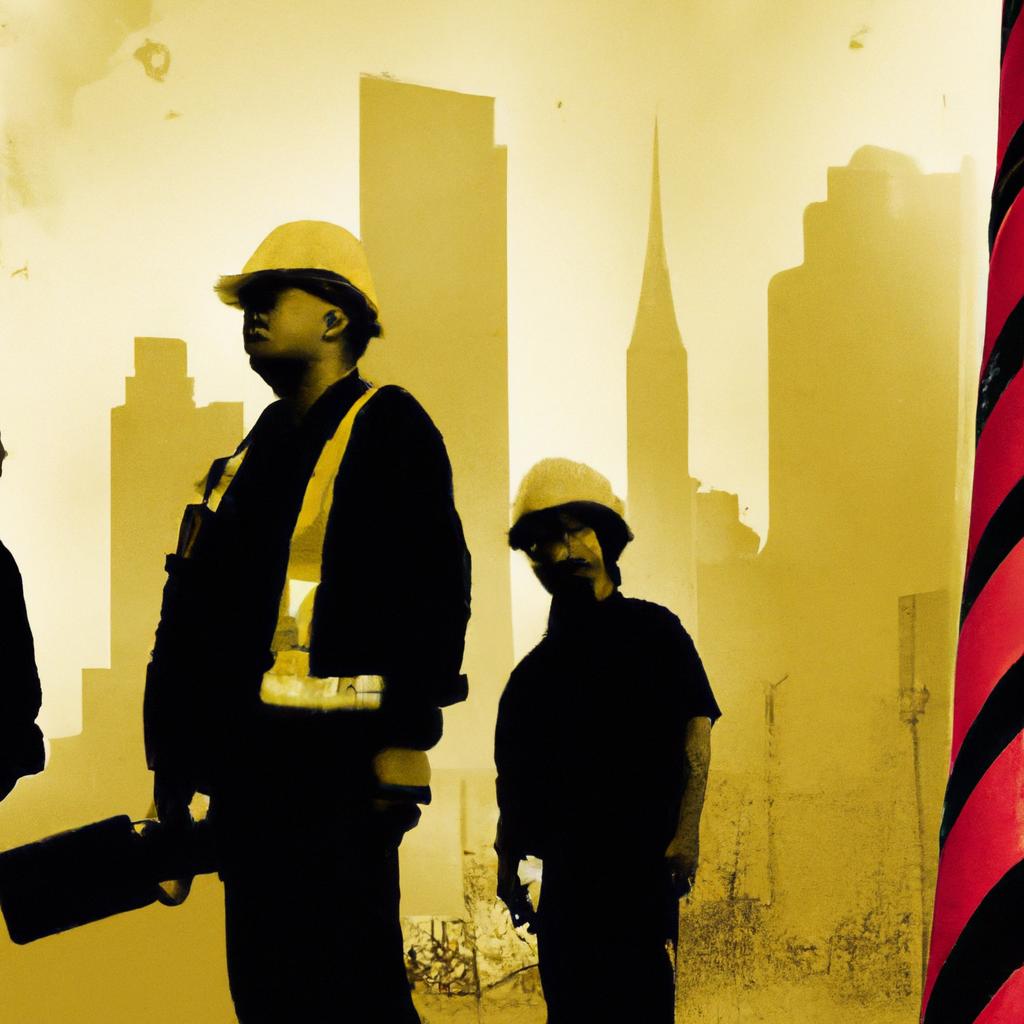Two construction workers tragically lost their lives on Monday morning at John F. Kennedy Airport when a concrete slab collapsed on them while they were performing utility work. The victims were identified as Francisco Reyes, 41, and Fernando Lagunas Pereira, 28. Our heartfelt condolences go out to their families and loved ones during this challenging time.
Reports from the New York Post revealed that Reyes and Pereira were working on relocating utility lines near the airport’s cogeneration plant to upgrade electrical systems when the accident occurred. The cause of the collapse remains unknown, leading to a stop work order for all of JFK Airport as investigations are underway.
Ensuring Safety on Trenching Sites
Trench collapses present a significant risk on construction sites, with the potential for severe injuries or fatalities. The weight of soil alone can be as heavy as a car, making cave-ins extremely hazardous. Risks associated with trench collapses include crush injuries, suffocation, dehydration, and risks to first responders.
- Crush injuries from the weight of debris
- Suffocation due to lack of oxygen under debris
- Dehydration or hypothermia from exposure to extreme temperatures
- Risks to first responders during rescue operations
Given the extreme dangers of trench collapses, it is imperative for employers to adhere to strict safety standards to prevent avoidable accidents like the one at JFK Airport.
Regulations set by the Occupational Safety and Health Administration (OSHA) aim to minimize the risk of trench collapses. Before excavation begins, a competent person must classify the soil or rock on-site to determine the appropriate safety measures. Daily inspections by this competent person are mandatory.
Other safety standards include keeping heavy equipment away from trench edges, maintaining a safe distance between excavated materials and the trench edge, identifying underground utilities, and conducting regular trench inspections.
Depending on site conditions, protective systems such as sloping, shoring, and shielding should be implemented to safeguard workers. Legal statutes like New York Labor Law Sections 240(1) and 241(6) may also hold parties liable for trench collapses.
Legal Support for Trench Accidents in New York
Construction workers have the right to a safe work environment free from unnecessary risks. If you or a loved one has suffered injuries due to negligence, you may be entitled to compensation for damages.
Our trench accident lawyers specialize in helping victims seek rightful compensation. Notable settlements include:
- $12,000,000 settlement for a tunnel worker injured in a Manhattan construction site accident
- $5,500,000 settlement for a construction worker struck by equipment in Nassau County
- $4,250,000 settlement for a union excavator injured in Brooklyn Navy Yard
- $3,075,000 result for a union plumber injured by falling gravel
To consult with our experienced attorneys, contact us at 212-736-5300 or fill out our online contact form today.
The post Two Workers Killed in Trench Accident at JFK Airport first appeared on Block O’Toole & Murphy.
Two Workers Killed in Trench Accident at JFK Airport
Details of the Incident
On a fateful morning at JFK Airport, tragedy struck when two workers lost their lives in a trench collapse. The workers, who were employed by a construction company working on a project at the airport, were in the trench when it suddenly caved in, trapping them underneath tons of dirt and debris. Despite the best efforts of emergency responders, both workers were pronounced dead at the scene.
Cause of the Accident
Investigations into the incident revealed that the trench was not properly shored up or supported, leading to its collapse. Trench collapses are known to be one of the most dangerous hazards in construction work, as they can occur suddenly and without warning. Proper safety measures, such as shoring, shielding, and sloping, are necessary to prevent such accidents from happening.
Importance of Trench Safety Measures
Ensuring the safety of workers in and around trenches is crucial to prevent accidents like the one at JFK Airport. Employers and construction companies must prioritize safety training, provide proper equipment, and implement strict safety protocols to protect their workers from harm. Failure to do so can result in devastating consequences, as seen in this tragic incident.
Benefits and Practical Tips for Trench Safety
| Benefits of Trench Safety | Practical Tips |
|---|---|
| Prevents accidents and injuries | Provide proper safety training for all workers |
| Ensures compliance with safety regulations | Inspect trenches regularly for signs of instability |
| Protects the lives of workers | Use appropriate shoring techniques to support trenches |
Case Studies
Several other incidents of trench accidents have been reported in recent years, highlighting the importance of proper safety measures. In 2019, a construction worker in Chicago was killed when a trench collapsed on him. Similarly, in 2020, two workers in Texas lost their lives in a trench collapse. These tragic incidents serve as a stark reminder of the dangers posed by trench work and the need for strict safety protocols.
Firsthand Experience
As someone who has worked in the construction industry for many years, I have witnessed firsthand the dangers of trench work. Proper safety training and adherence to safety protocols are non-negotiable when it comes to working in and around trenches. It is essential for employers to prioritize the safety of their workers and ensure that proper safety measures are in place at all times.
In conclusion, the trench accident at JFK Airport serves as a sobering reminder of the importance of trench safety in the construction industry. Employers, workers, and regulatory bodies must work together to enforce safety regulations and prevent tragic incidents like this from happening in the future.


